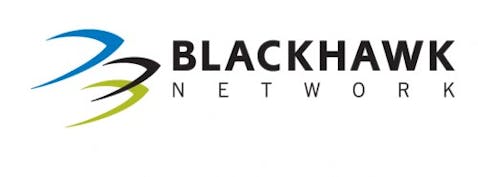Benjamin Graham advised against investing in new initial public offerings (IPOs), as he believed that IPOs typically represent a means for exit for prior owners and are rarely priced at a discount. I like to keep an open mind and examine all investments, including IPOs, on a case-by-case basis. Blackhawk Network Holdings Inc (NASDAQ:HAWK), one of the largest third-party gift card distributors globally and a wholly owned subsidiary of Safeway prior to its April IPO, recently caught my eye. However, issues such as distributor concentration, seasonality and strong parent influence prevent me from taking a position in the stock. Moreover, it has limited upside at current valuations, trading at 17 times forward P/E and 1.2 times PEG.
Your biggest strength could also be your weakest link
Blackhawk Network Holdings Inc (NASDAQ:HAWK)’s key competitive advantage lies in providing content providers with exposure to more than 160 million consumer visits per week via over 100,000 retail locations. This makes it highly dependent on its distributors. Products sold at Blackhawk Network Holdings Inc (NASDAQ:HAWK)’s top five distributors, which are all grocery retailers like Safeway, accounted for close to half of its fiscal 2012 revenues. This represents significant distributor concentration risk, which is partly mitigated by multi-year distribution partnership agreements, which typically have to be renewed every three to five years.
It is worth highlighting, however, that Blackhawk Network had previously issued common stock and warrants to four of its distribution partners, according to its prospectus. This is in line with competitive strategic analysis that states distributor concentration leads to a weaker bargaining power for Blackhawk Network Holdings Inc (NASDAQ:HAWK), resulting in it possibly offering “sweeteners” to secure future contract renewals.
Quarterly reporting loses significance
While I have never been a fan of quarterly reporting, which results in undue management attention on short-term financial results, quarterly financial results do provide early warning signs of deteriorating business quality. It is intuitive that the last two months of every calendar is the season of gift-giving and as a result, about half of Black Hawk Network’s revenues are generated in the fourth quarter. This means that investors are unable to draw relevant insights from quarterly financial metrics like revenue growth and margins for the first three quarters of the year.
Is a strong parent a boon or a bane?
While some perceive Blackhawk Network’s parent grocery background gives it an edge in winning over new grocery distribution partners, others are concerned over the significant control of Safeway has over Blackhawk Network Holdings Inc (NASDAQ:HAWK). I belong to the latter group. Safeway has a 73% equity interest and controls 91% of the votes through its 93.6% ownership of Class B common stock, according to its most recent 10-Q. While I am not suggesting any issues with corporate governance here, I would prefer that minority shareholders have a bigger say. Moreover, this concentrated share ownership makes it more likely that Safeway will pare down its stake in the future, potentially depressing Blackhawk’s share price.
Peer comparison
Blackhawk Network Holdings Inc (NASDAQ:HAWK)’s peers include Euronet Worldwide, Inc. (NASDAQ:EEFT) and Green Dot Corporation (NYSE:GDOT). It is valued at a premium to its peers with a forward P/E of 17, while Euronet Worldwide, Inc. (NASDAQ:EEFT) and Green Dot Corporation (NYSE:GDOT) are both valued at 14 times forward P/E.

